Bosnia and Herzegovina’s deepest resources are the talents of its people
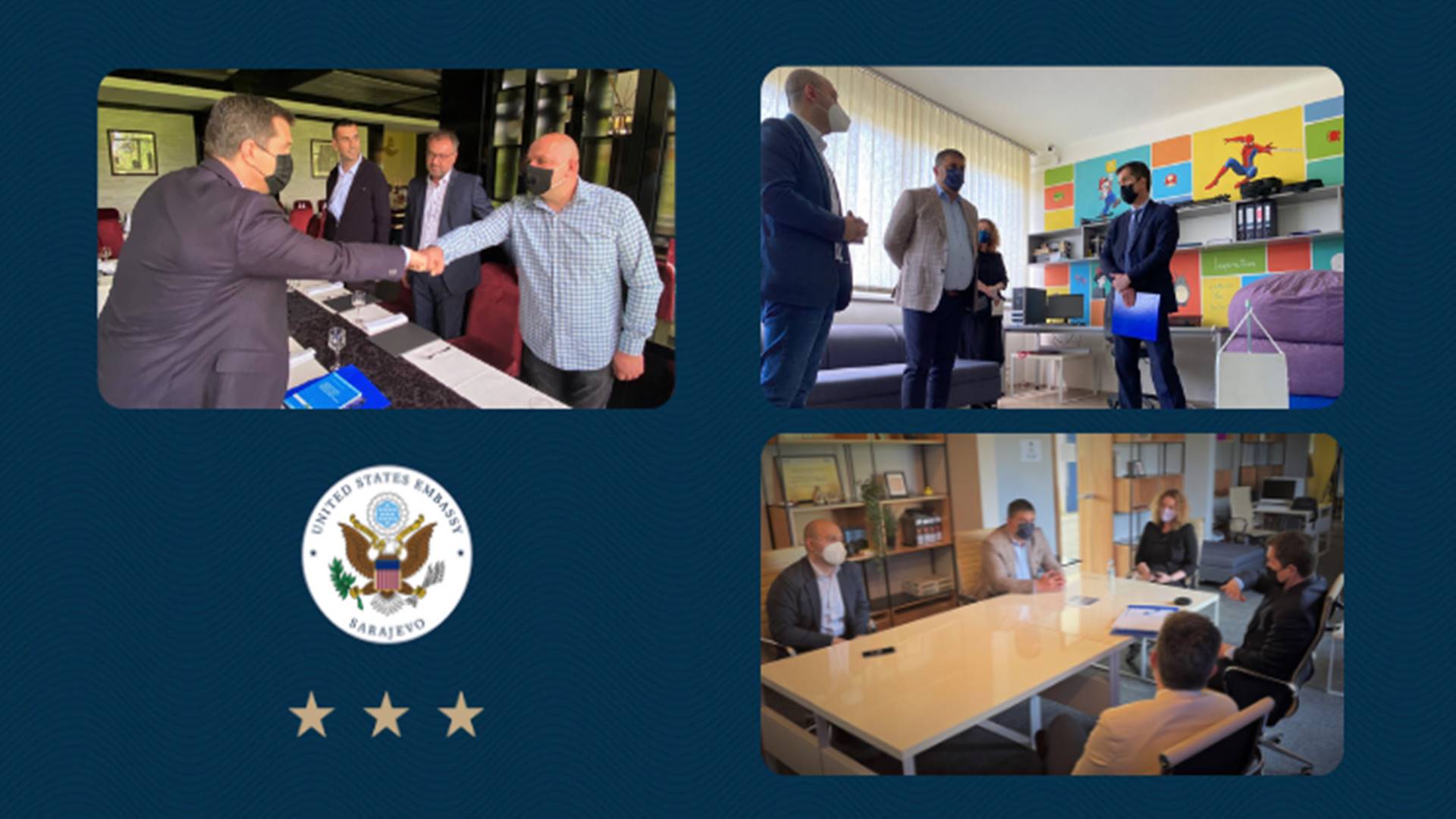
Many receive good job offers to leave the country while the patronage-driven BiH economy fails to create adequate opportunities or conditions to boost investment.
In the World Bank rankings for ease of doing business, BiH ranks last among the western Balkan nations and second to last among European nations. The reforms needed to raise that score are evident and common sense.
They are captured in the European Commission Opinion as well as the conditions tied to proposed IMF financing that would help power an economic recovery from COVID-19, which means there’s no better time than now to enact them.

There is a deep reservoir of potential foreign investment to create jobs, in particular from members of the diaspora. On the trip, I just completed to Banja Luka and Prijedor I had the pleasure of meeting with four diaspora entrepreneurs over lunch.
Their enthusiasm for the future of BiH was as evident as their concern over a business environment that sorely needs reform. I heard about problems obtaining reliable electricity supply.
Because the vagaries and incompatibilities of electricity and gas laws in BiH continue to discourage investment and keep costs to consumers and businesses high, reforms of these laws at the state level are also a top priority in 2021.
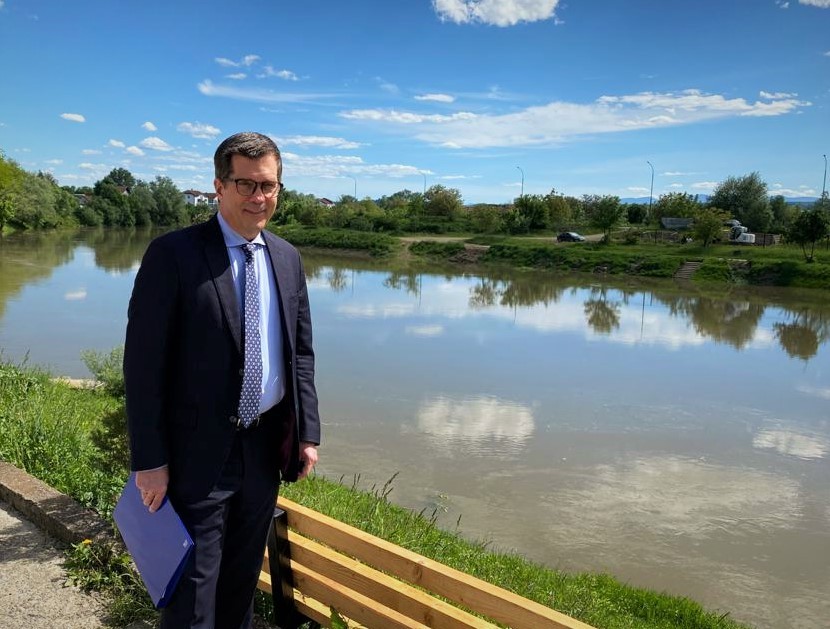
A perfect example is the need to update the state-level e-signature law to bring it in line with European Union requirements. Simple changes will facilitate cross-border transactions, ensuring interoperability both inside and outside BiH.
This law is a commonsense reform that will improve the life of every BiH citizen by reducing bureaucracy, speeding up the delivery of public services, and facilitating international commerce.
The United States Agency for International Development’s (USAID) E-Governance Activity and new Fiscal Reform Project 2 are helping BiH tackle this and increase transparency, reduce transaction costs, and make BiH more attractive to investors.
Investors seek a rule of law that is predictable and consistent. BiH must move forward with EU-compatible public procurement and conflict of interest laws.
They are critical for transparency/anti-corruption and depoliticizing the procurement process and government administration to ensure taxpayers’ money is spent wisely. Along with reforms to HJPC to bring integrity to the judiciary, they are also critical to the EU accession process.
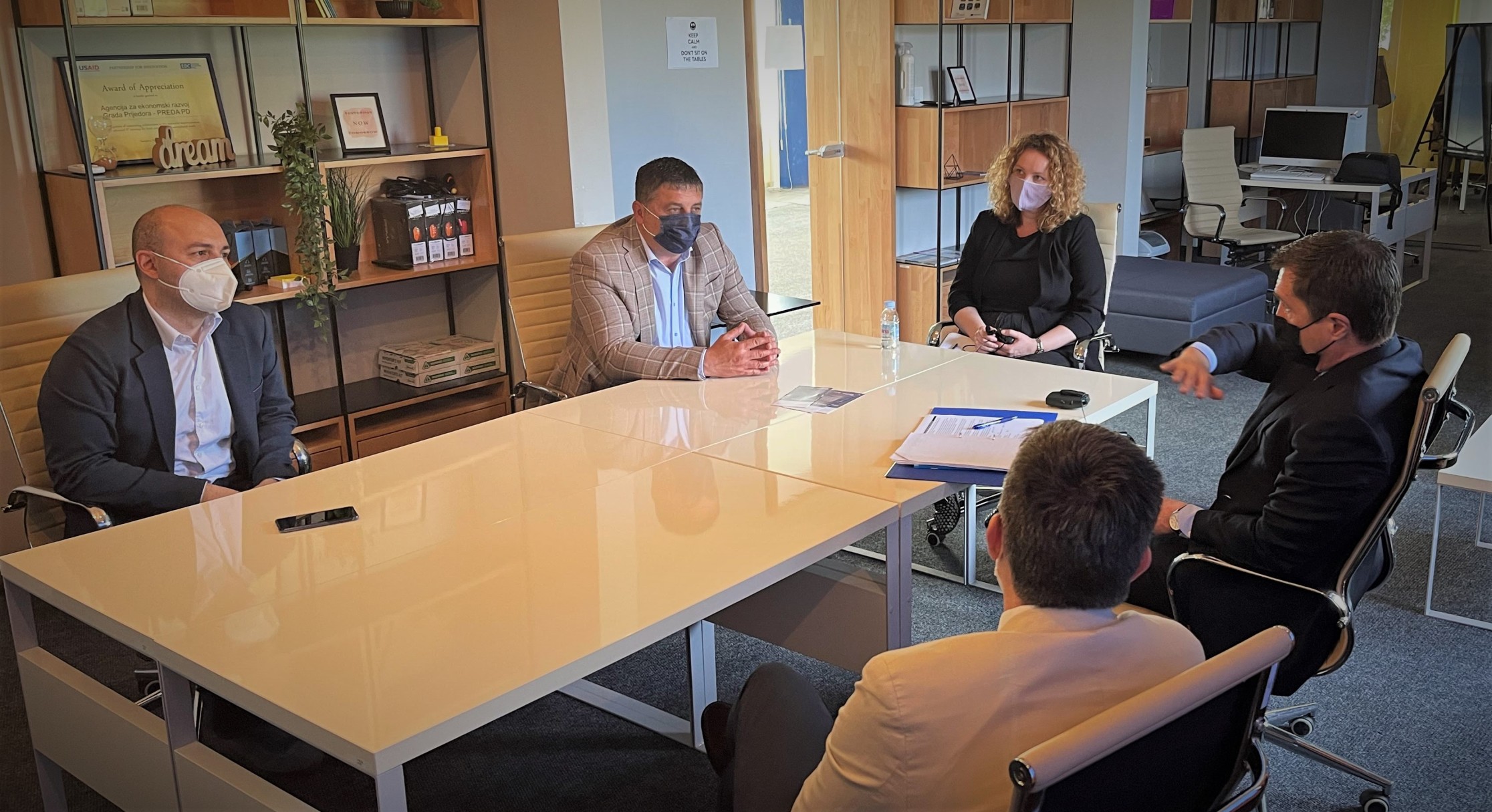
It wasn’t just the diaspora entrepreneurs who spoke to me about the need for a better functioning business environment in BiH.
I heard it from a round table discussion with members of BiH American Chamber of Commerce as well as from members of the Prijedor Agency for Economic Development (PREDA), a partner of USAID’s Workforce and Higher Access to Markets (WHAM) project.
USAID projects such as WHAM and Diaspora Invest help tackle the challenge and we will see many more employment opportunities develop from USAID’s new Turizam activity that aims to make BiH an international travel destination.
The PREDA visit also underscored another of BiH’s economic challenges, which is the link between out-migration and unemployment and the large gap between education results and employer needs.
More than 30 percent of the available workforce is unemployed with youth especially affected. When employment is available, the out-migration of skilled workers makes it difficult to find qualified applicants.
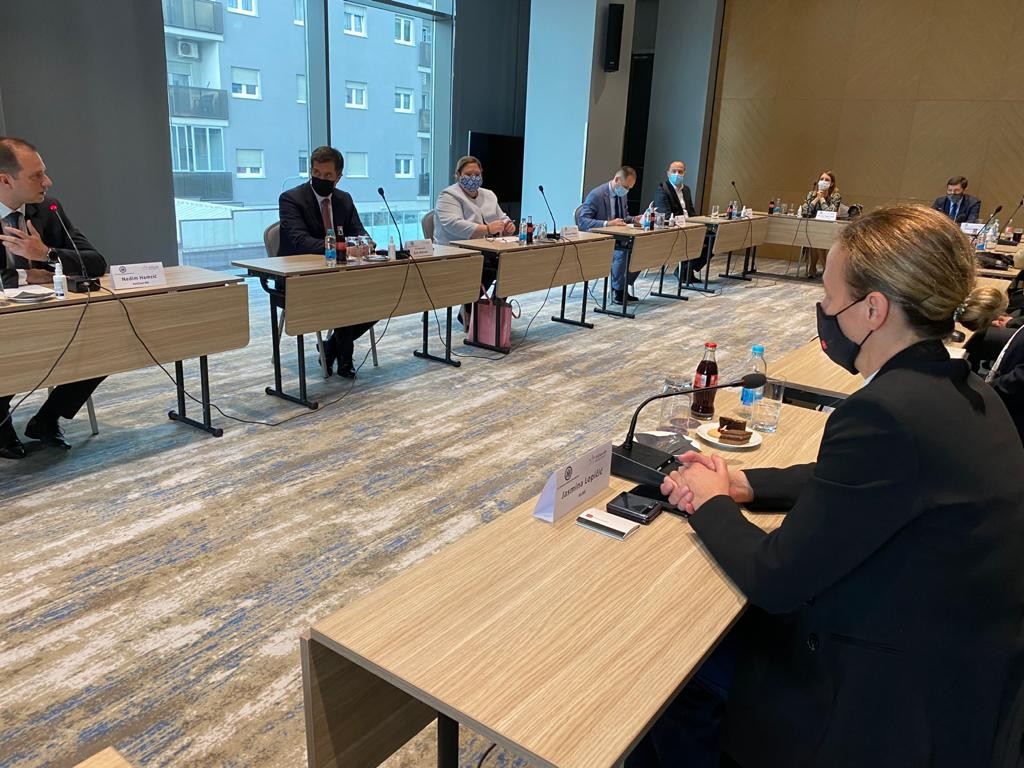
But the systemic challenges are greater than the capacity of our economic assistance programs. Political leaders need to do better than defend the status quo.
What gives me confidence that BiH can meet its economic reform challenges is the enthusiasm I encountered with the diaspora entrepreneurs and the AmCham and PREDA members.
There is a strong appetite to see BiH succeed by those best positioned to achieve that success – the private sector. Seeing yet more carcasses of productive factories once employing thousands renewed my resolve that the U.S. will continue to press leaders to begin raising BiH to EU and Euro-Atlantic standards for prosperity and rule of law, reform by reform.
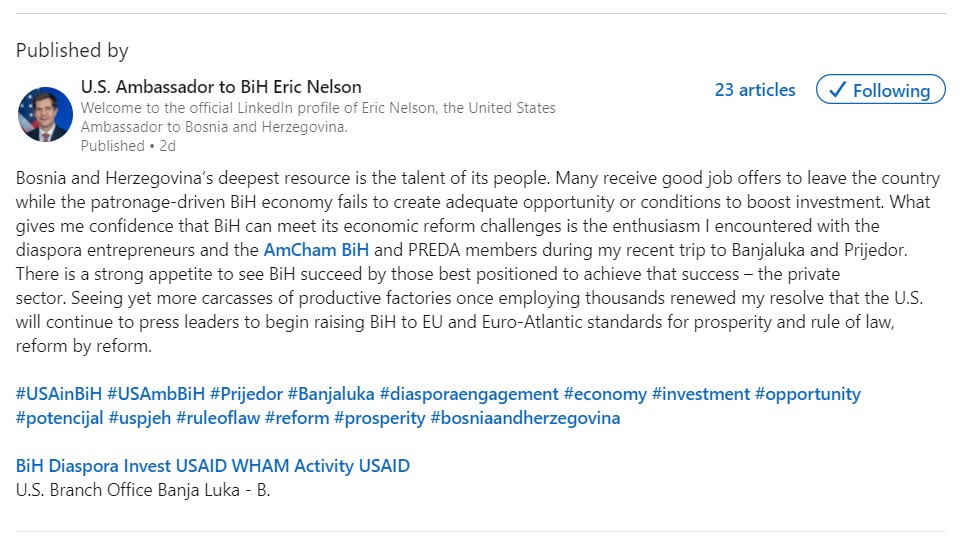
Napomena o autorskim pravima: Dozvoljeno preuzimanje sadržaja isključivo uz navođenje linka prema stranici našeg portala sa koje je sadržaj preuzet. Stavovi izraženi u ovom tekstu autorovi su i ne odražavaju nužno uredničku politiku The Balkantimes Press.
Copyright Notice: It is allowed to download the content only by providing a link to the page of our portal from which the content was downloaded. The views expressed in this text are those of the authors and do not necessarily reflect the editorial policies of The Balkantimes Press.
